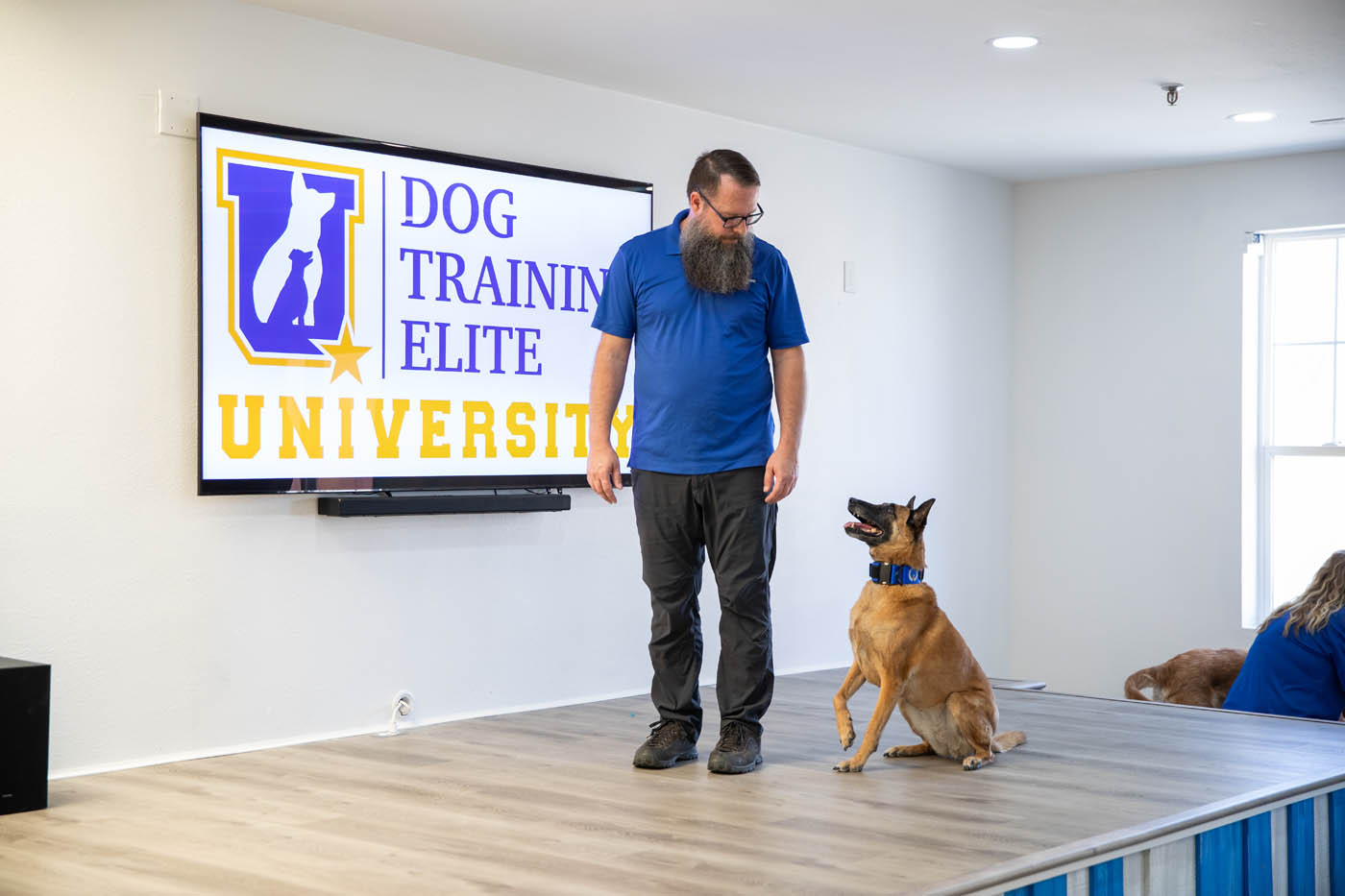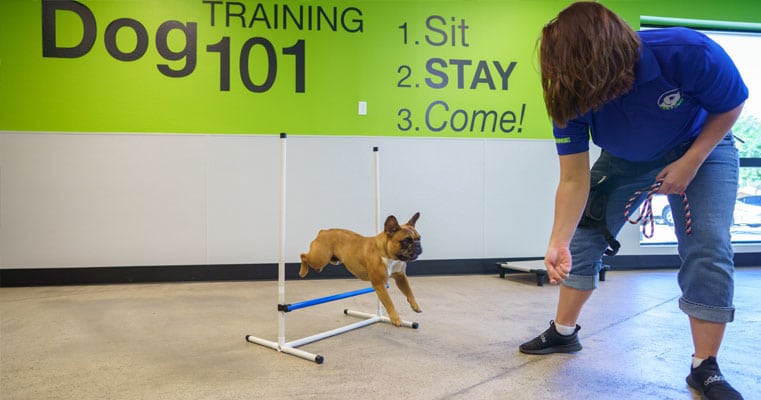Checking Out Choices for Dog Training Charlotte: What You Need to Know
Checking Out Choices for Dog Training Charlotte: What You Need to Know
Blog Article
Unlock Your Pet dog's Possible: Proven Pet Training Approaches for Success
Effective dog training is a nuanced process that depends upon understanding canine habits and utilizing clinically backed methods. dog training charlotte. By including positive support, developing clear commands, and prioritizing socialization, canine owners can cultivate a productive relationship with their animals. However, challenges typically occur that need tailored solutions and a patient approach. Discovering these confirmed techniques exposes not only the capacity for behavior improvement but additionally the much deeper bond that can be formed in between owner and canine. What important strategies must be taken into consideration to genuinely unlock your pet's capacity?
Recognizing Canine Actions
Comprehending dog habits is important for reliable training and fostering a favorable relationship in between dogs and their owners. A comprehensive grasp of canine body movement, vocalizations, and social communications is crucial for acknowledging their feelings and needs. Pet dogs connect mainly via non-verbal cues; for instance, a wagging tail might indicate enjoyment, while pinned ears can signify fear or submission.

Additionally, ecological aspects play a considerable function in shaping a canine's behavior. Changes in regular, brand-new environments, or the existence of unknown individuals can lead to stress or anxiousness in pets. Acknowledging these triggers makes it possible for owners to mitigate unfavorable responses and create proper training methods.
Eventually, a deep understanding of canine actions lays the structure for successful training methods, boosting both habits and the overall bond in between the pet dog and its owner. Dog training. This expertise is vital for promoting a well-adjusted, happy canine friend
Positive Support Methods
Effective training counts heavily on favorable reinforcement techniques, which have actually been shown to produce significant outcomes in shaping wanted habits in pets. This technique involves awarding a dog for showing particular actions, thus raising the probability that these actions will be duplicated. Rewards can take numerous forms, including deals with, praise, playthings, or play, relying on what encourages the individual pet dog.

It is vital to progressively phase out benefits as the canine finds out the behavior, transitioning to recurring support. This technique maintains the actions over time while protecting against dependence on constant incentives. By concentrating on favorable reinforcement, instructors can grow a relying on relationship with their canines, promoting a healthy and participating training environment that improves total obedience and performance.
Establishing Regular Commands
A fundamental facet of effective pet dog training is the facility of constant commands. Uniformity in commands is vital for efficient communication in between the canine and the fitness instructor. When commands are consistent, pets find out to connect specific words with wanted behaviors, which speeds up the training procedure and boosts understanding.
To develop regular commands, it is vital that all relative use the same terminology and gestures. If one individual uses "sit" while another claims "rest down," it can develop complication for the dog. Select clear, distinct words for commands and make sure everyone associated with the dog's training sticks to these options.
Additionally, rep is vital. Enhance commands Homepage with regular method, making sure that the dog gets sufficient possibilities to respond correctly. When a pet dog successfully follows a command, immediate positive support should follow. This could be in the kind of deals with, praise, or playtime, solidifying the link in between the action and the command.
Last but not least, hold your horses. Developing consistent commands takes time and initiative. With commitment and clarity, you will certainly assist your dog create a solid understanding of assumptions, inevitably causing a well-behaved companion.
Socialization and Direct Exposure
Socializing a pet dog is vital for cultivating a positive and well-adjusted companion. This procedure includes exposing your canine to a range of environments, people, and other pets to establish their social skills and versatility. Early socialization, ideally in between the ages of three to fourteen weeks, is vital, as it prepares for a canine's future actions.
Throughout socialization, objective to give favorable experiences in various setups, such as parks, hectic roads, and homes with various other pets. Introduce your pet to different stimuli, consisting of sounds, views, and smells, making certain that each encounter is fulfilling. This direct exposure aids minimize concern and stress and anxiety, paving the method for a much more durable pet.
Taking part in controlled team play sessions with other pets can additionally enhance social abilities, instructing your animal proper communications and boundaries. Constantly monitor your dog's convenience level throughout these experiences, progressively boosting exposure as their confidence expands. Keep in mind, the goal is to create an all-round animal that grows in diverse circumstances, promoting an unified connection with both humans and other pets. Focusing on socialization will significantly add to your dog's overall happiness and habits throughout their life.
Conquering Common Educating Difficulties

Dogs may battle to focus in hectic or unknown settings. Slowly desensitize your pet to interruptions by starting training in a silent setting and slowly introducing even more stimulations as they come to be competent.
Furthermore, behavior concerns like leaping or excessive barking can become discouraging. Address these by showing different behaviors, such as sitting smoothly when greeting guests. Consistency and persistence are vital; enhance wanted behaviors consistently and avoid scolding, which can result in confusion.
Lastly, recognize that each canine is distinct, and training timelines may find more information vary. Tailor your method to your canine's individual needs, and seek professional guidance if necessary. With willpower and the appropriate approaches, getting over these obstacles can bring about a trained, delighted canine buddy.
Final Thought
To conclude, unlocking a pet's possible requires a detailed method that incorporates an understanding of canine behavior, the application of favorable reinforcement techniques, and the facility of regular commands. Early socialization and exposure to varied atmospheres even more enhance a pet's versatility and confidence. By addressing usual training difficulties with tailored approaches and persistence, a cooperative and unified connection between pet dog and handler can be cultivated, eventually resulting in a mannerly companion with the ability of flourishing in various scenarios.
Effective pet training is a nuanced process that pivots on comprehending canine actions and utilizing medically backed techniques.Understanding pet dog behavior is necessary for effective training tracking training for dogs and promoting a positive connection in between canines and their proprietors.Effective training depends greatly on positive support techniques, which have been revealed to yield substantial outcomes in forming desired habits in dogs. When commands are uniform, pet dogs learn to connect details words with desired habits, which increases the training process and improves understanding.
In final thought, opening a dog's prospective demands a comprehensive method that includes an understanding of canine actions, the application of positive reinforcement methods, and the facility of regular commands.
Report this page